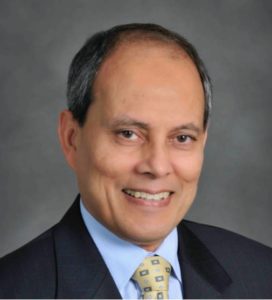Events
![[CANCELLED] IEEE Ottawa seminar on Microgrid Stability Definitions, Analysis, and Modeling @ Algonquin College, T-Building, Room T129 | Ottawa | Ontario | Canada](https://www.ieeeottawa.ca/wp-content/uploads/2020/02/IEEE_MFarrokhabadi_Seminar_Flyer_17Mar2020-232x300.jpg)
NOTE: This event has been cancelled due to COVID-19 precautions
Dear colleagues,
Due to the current situation regarding corrona virus COVID-19, we have to CANCEL our IEEE Ottawa Section Seminar:
“Microgrid Stability Definitions, Analysis, and Modeling”
by Dr. Mostafa Farrokhabadi,
which was scheduled for Tuesday, Mar. 17, 2020, 6:00 p.m., at Algonquin College, 1385 Woodroffe Ave., T-Building, Room T129.
The new date and time for this seminar will be determined and announced when the circumstances allow.
We are sorry for the inconvenience and thank you for your understanding.
Sincerely,
Branislav Djokic
TITLE: Microgrid Stability Definitions, Analysis, and Modeling
SPEAKER: Dr. Mostafa Farrokhabadi, Director of Technology at BluWave-ai, Ottawa
DATE: Â Â Â Tuesday, March 17, 2020.
TIME:    Refreshments, Registration and Networking: 6:00 p.m.; Seminar: 6:30 p.m. – 7:30 p.m.
LOCATION: Ciena Optophotonics Lab, Room T129, T-Building, School of Advanced Technology, Algonquin College, 1385 Woodroffe Ave., Ottawa, ON Canada K2G 1V8.
PARKING: Parking at Lots 8 and 9 after 5 p.m. is $5 flat rate, pay at a machine and display the ticket on your dashboard. Please respect restricted areas.
Abstract: A microgrid is defined as a group of Distributed Energy Resources (DERs) and loads that act locally as a single controllable entity and can operate in both grid-connected and islanded modes. Microgrids are considered a critical link in the evolution from vertically integrated bulk power systems to smart decentralized networks, by facilitating the integration of DERs. Entities, such as government agencies, utilities, military bases, and universities around the world are deploying microgrids, and an increasing number of these systems are expected to be developed in the next decade. In general, stability in microgrids has been treated from the perspective of conventional bulk power systems. However, the nature of the stability problem and dynamic performance of a microgrid are considerably different than those of a conventional power system due to intrinsic differences between microgrids and bulk power systems, such as size, feeder types, high share of Renewable Energy Sources (RES), converter-interfaced components, low inertia, measurement devices such as Phase-Locked Loop (PLL), unbalanced operation, etc.
This seminar discusses the findings of the award-winning IEEE PES Task Force on Microgrid Stability Definitions, Analysis, and Modeling, which defines concepts and identifies relevant issues related to stability in microgrids. The seminar presents definitions and classification of microgrid stability, considering pertinent microgrid features such as voltage-frequency dependence, unbalancing, low inertia, and generation intermittency. A few examples will be also presented, highlighting some of the stability classes discussed during the seminar.
Speaker’s Bio: Dr. Mostafa Farrokhabadi is the Senior Director of Technology at BluWave-ai, an internationally award-winning startup offering AI-enabled control and optimization solutions for smart grids. He has more than 8 years of experience in designing mission critical grid solutions for industry and academia, including technical leadership of a $6M international consortium in Electric Grid Modernization, and Smart Grid projects with Hatch and Canadian Solar. Mostafa has authored/co-authored several high-impact technical papers and patents on intelligent control and optimization of renewable-penetrated grids.
Mostafa obtained his PhD in Electrical and Computer Engineering from the University of Waterloo. He has also studied and performed research in Sweden at KTH and Germany at KIT. During the course of his career, Mostafa has received multiple business, research, and teaching awards, including the prestigious University of Waterloo Doctoral Thesis Completion Award and Ottawa’s Forty Under 40.
Mostafa has also led the award-winning IEEE Power and Energy Society Task Force on microgrid stability, an international coalition of 21 researchers from 14 institutions investigating stability issues in microgrids. Currently, he serves as an Associate Editor of the IEEE Transactions on Smart Grid.
Admission: Free. Registration required. Please register by e-mail contacting: ajit.pardasani@ieee.org or branislav@ieee.org.
IEEE_MFarrokhabadi_Seminar_Flyer_17Mar2020
Presented by IEEE MTT-S Distinguished Microwave Lecturer (DML) Talks:
Transceiver Architectures for Beyond-5G: Challenges and R&D Opportunities, co-organized with SSC-S
By
Dr. Payam Heydari
University of California, Irvine
Date: Thursday, May 14 , 2020
Time: 12:00 PMÂ – 1 PM
Abstract:
The ongoing super-linear growth of world’s population coupled with the worldwide access to internet and the general public’s tendency to use more bandwidth-intensive applications fuel the urgency to enhance wireless infrastructures so as to meet these demands. Consequently, the wireless R&D is headed towards the inception of “Beyond-5G” (e.g., 6G) technology. This webinar provides a comprehensive overview of challenges and opportunities in designing beyond-5G transceiver architectures capable of achieving high data rates above and beyond 20 Gbps.Â
                                 Speaker Bio:
Payam Heydari received his Ph.D. degree from the University of Southern California in 2001. He is currently a Full Professor of Electrical Engineering at the University of California, Irvine. Dr. Heydari’s research covers the design of terahertz/millimeter-wave/RF and analog integrated circuits. He is the (co)-author of two books, one book chapter, and more than 150 journal and conference papers.Â
Dr. Heydari is an AdCom member of the IEEE Solid-State Circuits Society. Dr. Heydari currently serves an Associate Editor for the IEEE Journal of Solid-State Circuits and the IEEE Solid-State Circuits Letters. He was a member of the Technical Program Committee of the International Solid-State Circuits Conference (ISSCC). Dr. Heydari is an IEEE Fellow for contributions to silicon-based millimeter-wave integrated circuits and systems.
Â
        Event is free, but space is limited.  All participants must register in advance. For                         Registration: please use the following link

In this time of social distancing, we are pleased to announce that all the team members of IEEE YP and WIE Ottawa Sections are fully committed to providing online interaction and support to our community! In partnership with Professional Engineers Ontario, we present an online talk in “Clarifying the Path to Becoming a Professional Engineer.”
If you are an engineering undergraduate or post-graduate student, or a recent graduate starting out your engineering career, then this seminar might be for you. In it you will learn:
- What is PEO?
- What engineering experience is PEO looking for once I graduate?
- I have international engineering education and experience; how is that evaluated by PEO?
- How is my engineering experience evaluated by PEO?
- How do I prepare my Experience Record?
- What is the PPE?
- What is the EIT Program and the Student Membership Program?
The emphasis of this webinar will be on the P. Eng. licensure process – what PEO is looking for. The webinar will focus on how engineering experience is evaluated and how you can facilitate the process. Learn the dos and don’ts of preparing your licensing application for evaluation.
To participate, you will require: internet connection to view the webinar, phone access to dial into the conference for audio.
We look forward to speaking with you!

Presented by the IEEE Ottawa Section MTT-S/AP-S Chapter & Young ProfessionalsÂ
Accelerating 5G Design Innovation Through SimulationÂ
                                  By
Dr. Laila SalmanÂ
                               Ansys Inc.
                     Date: Wednesday, June 10, 2020
                        Time: 2:30 PM – 4:00 PM
                                  Location: Online
           Â
Abstract
5G connectivity is the next technological revolution. This pervasive, ultrafast compute network will connect billions of devices with data on-demand. It will drive economic expansion in many sectors, spawn new products and services, and transform our lives as we know it. Yet, before 5G can deliver on its promises and quality of service (QoS) metrics, wireless systems designers and engineers must overcome sizable challenges. Â
Ansys 5G simulation solutions empower these individuals to solve the complexities impeding device, network and data center design. Ansys 5G simulation solutions provide electromagnetics, semiconductor, electronics cooling and mechanical analysis tools to accurately simulate 5G radio and related technologies. The multi-solution platform leverages high-performance computing that can be deployed across the enterprise, allowing designers and engineering experts to collaborate more effectively.Â
This seminar will highlight the following 5G engineering challenges:Â
·  End User Equipment Â
  o  multi-frequency band antenna integrationÂ
  o   modeling of mm-wave array antennas Â
  o   RFI, EMI & Desense MitigationÂ
·  Base-Station Antenna ModelingÂ
  o  Full Communication Analysis in Electrically Large & Complex EnvironmentÂ
  o  RFI, Data Coverage & ElectroThermal ReliabilityÂ
Speaker Bio
Dr. Laila Salman received the B.S. and M.S. degrees in electronics and communication engineering from Cairo University, Egypt, and the PhD. Degree in electromagnetic and antenna design from the University of Mississippi. She also worked as a post-doctoral student at the Université de Quebec en Outaouais, Gatineau, Canada till 2010. Her research was on dielectric resonator antennas, wearable antennas, microwave and millimeter-wave circuits and systems, microwave imaging for early detection of breast cancer and scattering from left-handed metamaterials. Dr. Salman joined Ansys Canada Ltd. in August 2010 as a Lead Technical Services Specialist for High Frequency Applications.
Registration: Please use the link in the registration section to sign up for the event.
To join event use the following link.

Webinar: Role of the Smart Grid in Facilitating the Integration of Renewables
Speaker: Prof. Dr. Saifur Rahman, Director, Virginia Tech Advanced Research Institute, USA, IEEE Power & Energy Society (PES) President 2018-2019, IEEE PES Distinguished Lecturer
Date/Time: Tuesday, July 28, 2020, 6:30 pm – 7:30 p.m. EDT
Admission: Free, but registration is required: https://events.vtools.ieee.org/m/234594
For more details, please visit: https://www.ewh.ieee.org/soc/pes/ottawa
Abstract – With the focus on environmental sustainability and energy security, power system planners are looking at renewable energy as supplements and alternatives. But such generation sources have their own challenges – primarily intermittency. It is expected that the smart grid – due to its inherent communication, sensing and control capabilities – will have the ability to manage the load, storage and generation assets (including renewables) in the power grid to enable a large-scale integration of distributed generation. In a smart grid, information about the state of the grid and its components can be exchanged quickly over long distances and complex networks. It will therefore be possible to have the integration of sustainable energy sources, such as wind, solar, off-shore electricity, etc. for smoother system operation. But in order for this to be possible, the electric utility will have to evolve, and change their ways of operation to become an intelligent provider of these services. This lecture introduces the operational characteristics of renewable energy sources, and various aspects of the smart grid – technology, standards and regulations. It also addresses the interplay among distributed generation, storage and conventional generation to provide an efficient operational strategy in the context of the smart grid.

